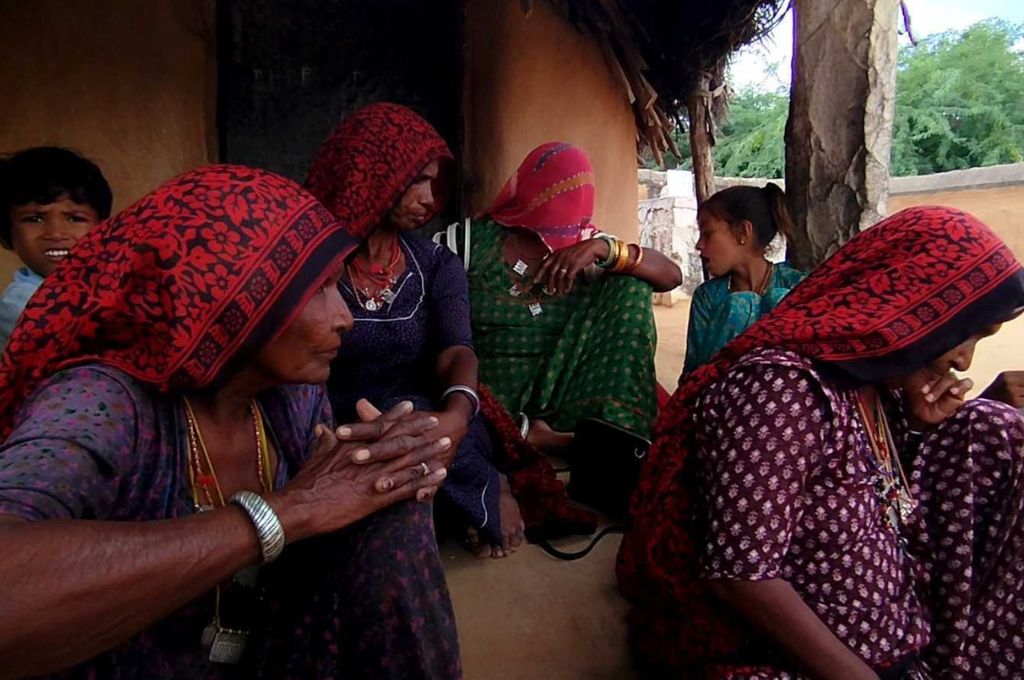Colourful chundaris for change: Rewriting widowhood customs in Barmer

In Barmer district, Rajasthan, high rates of violence against women; suicides; and casteism persist. I am part of a women’s collective locally known as Mahila Sangathan that assists women facing domestic violence, sexual abuse, mental health issues, child marriage, lack of education, and other such problems. From my experience, I have learned that the situation is worse for widowed and single women who carry the burden of additional stigma.
Every caste or religious community in Barmer has a tradition that forces widows to wear a sign of their widowhood at all times. The colour of the widow’s chundari (headscarf) is often dark. She is typically not allowed to wear brightly coloured clothes, mehendi, bindi, or make-up. Widows cannot take part in weddings, births, or any other celebrations, nor can they enter temples or other religious spaces as they are considered inauspicious.
A woman I spoke with didn’t even attend her own daughter’s wedding. “Of course I wanted to go [to my daughter’s wedding]. People like me don’t want to follow this regressive custom, but fear society’s disdain if we rebel.”
As part of the collective, we provide solidarity and support to widowed women who don’t wish to follow this custom any more. We work to change society’s perception of widows through a ritual called chundari parivartan (changing the headscarf). It is a form of protest where we encourage widows to wear colourful chundaris and revolt against the norm. Occasionally, we organise chundari parivartan as a group ritual, and at other times, we visit people’s houses and help them perform it. Along with changing their chundari, the women from the collective also nudge the participants to wear mehendi. We help in providing counsel to the women and their families, and prepare them to be strong in the face of any societal backlash.
During the collective’s meetings across different communities and areas, we explain the backwardness of this tradition and motivate people to reject it. Sometimes, hearing this and the stories of other women, widows come up to us and request to help them perform the ritual at their home. We then go to the house and carry out the ritual; there have been more than a hundred such rituals till date.
Mostly women attend these meetings, but sometimes there are men as well. Once we were called to the panchayat, where a group of disgruntled male panchayat members asked us why we were interfering in old traditions. We asked rhetorical questions such as, “Do men have to show symbols of their widowhood?” “Do they have to stop attending celebrations?” “Isn’t the panchayat supposed to provide justice to all, including women?” Some men engage in open discussion with us, others don’t.
Many of the women whose houses we go to end up joining the collective and carrying forward the tradition. Hema Devi,* who has gone through the ritual at her house, says, “Since that day, I have not looked back. I go to weddings, to work, to the temple, wherever I want to go. And even my in-laws and people around me have learned to accept that widowed women don’t bring bad luck.”
*Name changed to maintain confidentiality.
Anita Soni is an activist and the founder of Mahila Sangathan, Barmer.
—
Know more: Read this article to learn about the struggle that girls in Barmer face to access education.
Do more: Connect with the author at sonianita702@gmail.com to learn more about and support her work.



